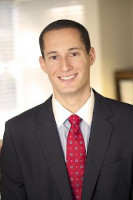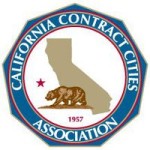 Dan Oney is the editor of PublicCEO.com, a news site focusing on providing a statewide perspective on California’s cities, counties and special districts. CBJ interviewed Mr. Oney about PublicCEO, the value of a dedicated readership and his recent address at the California Contract Cities Association State Legislative Orientation Tour.
Dan Oney is the editor of PublicCEO.com, a news site focusing on providing a statewide perspective on California’s cities, counties and special districts. CBJ interviewed Mr. Oney about PublicCEO, the value of a dedicated readership and his recent address at the California Contract Cities Association State Legislative Orientation Tour.
1. Tell us about your background, the origins of PublicCEO and how the site evolved and expanded.
In 2009, PublicCEO was started in response to what was seen as a gap in coverage: no one out there was focused solely on local government news and issues. The website was designed to target local, upper level staff and elected officials. Since our launch, we’ve developed a loyal reader base that our data shows follows the population center in California, but represents virtually every part of the state. We continue to publish PublicCEO every day, and continue to work towards improving our product and our value in the eyes of our readers.
2. What sets PublicCEO apart from other traditional media outlets?
Unlike most media outlets that cover local governments, we try to cover all local governments – including cities, counties, special districts, JPAs, etc. And there’s a plethora of local governments to cover. We participate in a local government conversation that is designed to fuel dialogue and the exchange of ideas.
3. What makes PublicCEO’s readership unique? How has the readership grown over the years?
PublicCEO will never be Politico.com or the Huffington Post, nor do we want to be. The niche that we have created provides a service – by tailoring our news and resources to the staff of local governments, we can be more technical and provide more valuable resources than if we simply published our information designed to appeal to the general public.
Have you ever read a technical industry magazine? They’re virtually unintelligible to anyone but industry experts. We don’t aim to be that narrowly constructed, but most people don’t care to read about a staff report or dig into a CAFR.
Our readership continues to grow, but no self-respecting online publisher or writer is ever satisfied with his or her market penetration. Each day, I wonder if today’s content will do better or worse than the day before.
4. Tell us about a story that PublicCEO broke that you are especially proud of.
I’d say that during my two plus years at PublicCEO, the best “scoop” I’ve had was in Hercules, and the mess that they found themselves in. Their finances were destroyed, as was confidence in their elected board, who all ended up being recalled.
One of my readers was at the city council meeting where it started coming to light, and sent me an email late one night. I was able to draft a story and publish it during the meeting, scooping all the major news outlets.
I received a call the next day from a reporter from a major newspaper asking me for details and asking how I’d managed to get something up so quickly. It really proved to me the value of loyal readers, and that’s a lesson I try to hang onto every day.
5. After years of covering local issues in California, what are the biggest challenges you see local entities facing today?
Local government’s biggest challenge may be state government. As soon as someone leaves a local government environment and moves onto the state, they seem to abandon all the lessons they learned in their old position. I suppose that’s part of their new role in governing. But so often you see people take steps that don’t really help at the state level but really hurt at the local levels.
I’d also say that local governments are challenged by the strength and expertise of newly elected members. The learning curve for anyone entering elected or public office is steep, and people want immediate action. But it takes time to learn and patience to find out how things work or don’t work. But the pressures of perceived public interest- especially from organized groups who can apply a tremendous amount of political pressure- can often force rash decisions or muddle issues.
6. You addressed CCCA at the CCCA State Legislative Orientation Tour earlier this week. Tell us about your presentation and offer your thoughts on the event and CCCA.
CCCA was kind enough to ask me to come and speak with them as part of their Legislative Orientation Tour, and I was honored that they once again asked for my insights.
I told their group that most people are flying blind for the start of this legislative season. Democrats in the Legislature have an open slate of projects they could pursue, and no one but maybe Sen. Steinberg, Speaker Perez, and Governor Brown know how ambitious they will be on big-ticket items – such as Prop 13 reforms, lowering thresholds for tax increases, regulatory reforms, etc. But it’s easy to anticipate the Legislature being much more active on lower-visibility issues. One that springs to mind is protecting services from outsourcing or contracting. Before supermajorities, they pushed through a limitation on outsourcing library services, and punitive measures were put in place for jurisdictions that passed PLA bans. These aren’t high visibility issues but are good ways to score quick victories – but can have major implications on local governments.
We also aren’t done with programmatic shifts to local governments. Realignment is a reality that will continue to evolve, and much of health care reform will likely fall to local governments to implement.
There’s a lot on the table this year, and its imperative that people like the CCCA, the League of California Cities, and CSAC continue to be loud and proud advocates for local governments.
7. What is an activity or hobby that you enjoy outside of work?
You’d never know it, but I love being home with my wife and dogs and cooking. How do some people celebrate a New Years? Go out and party? Not me. My wife and I stayed in and made ourselves a 9-course meal. We ate our food, played with our dogs, and drank champagne while we counted down from 10 to 2013.




